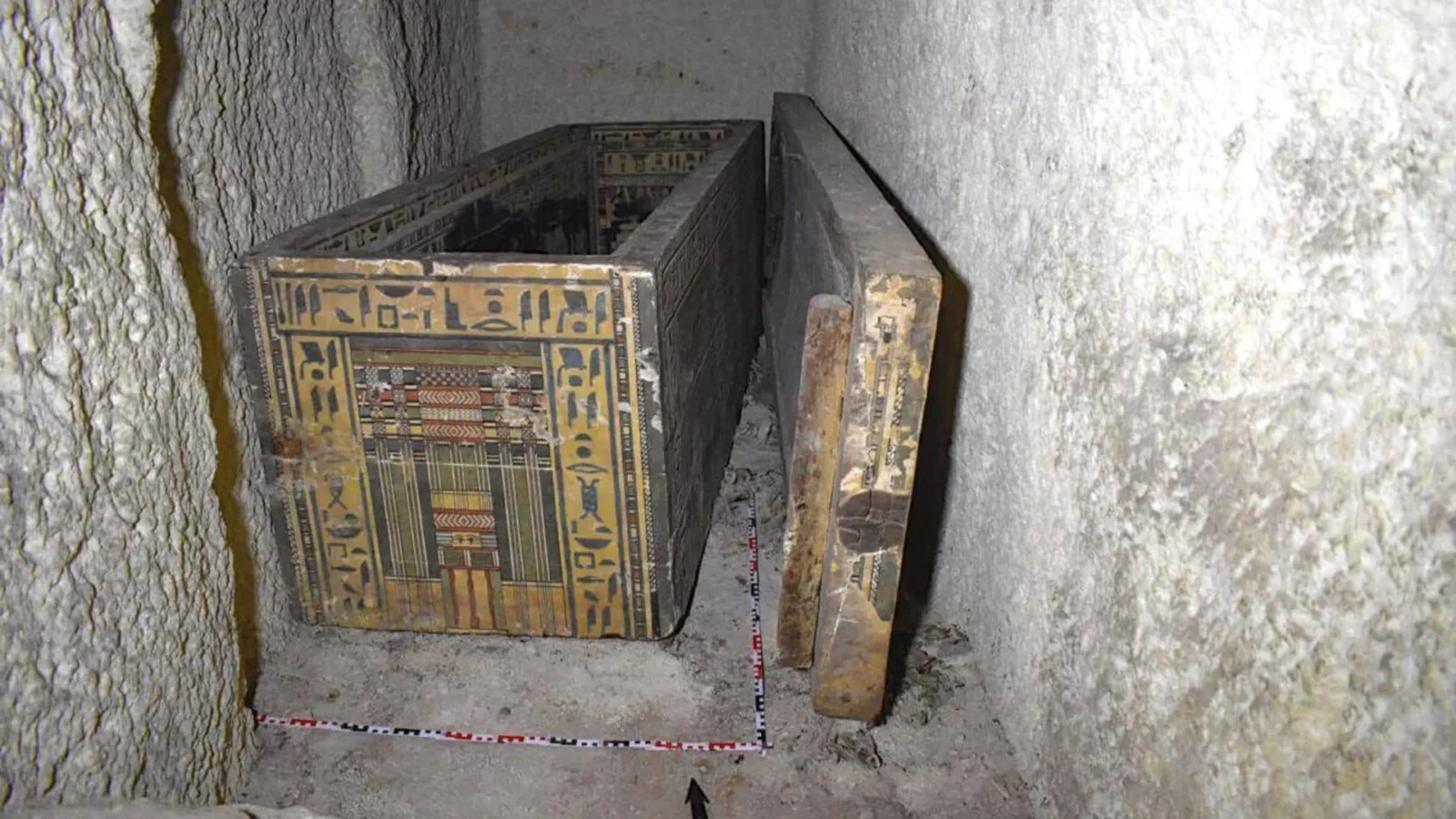A significant archaeological discovery has been made in Egypt, shedding new light on the influential figures of the country’s 12th Dynasty. A joint Egyptian-German archaeological mission has unearthed the burial chamber of Edi, the daughter of Jifai-Hapi, a powerful governor of Assiut, during the reign of Egypt’s 12th Dynasty (1991-1778 BC). The find, which includes beautifully preserved coffins and grave goods, offers valuable insights into the burial practices and societal hierarchy of the time.
The burial chamber, located 15 meters deep within her father’s grand tomb complex, contains two intricately decorated wooden coffins. These coffins, which belong to Edi, are adorned with detailed inscriptions that describe the journey to the afterlife, reflecting the deep spiritual beliefs of the ancient Egyptians. The texts likely served both as a guide and protection for Edi as she made her transition from the earthly realm to join her ancestors in the afterlife.
The discovery of the chamber is particularly significant, as it highlights the role of elite women in ancient Egypt’s religious and social practices. Edi, despite being the daughter of a prominent governor, was buried with similar reverence to her male counterparts, which speaks to the esteem women could hold in ancient Egyptian society. Archaeologists believe this could further enrich our understanding of gender roles and spiritual practices during the Middle Kingdom era.
Though the burial chamber showed signs of ancient looting, many key artifacts were left intact. These include four canopic jars, traditionally used to store organs during the mummification process, wooden statues, and fragments of Edi’s own remains. These artifacts are vital for archaeologists, as they offer clues about the funeral rituals practiced by the wealthy classes of the time.
Preliminary studies of Edi’s remains suggest that she died before the age of 40 and had a congenital foot defect. Despite the damage caused by looters, her remains are well-preserved enough for researchers to conduct further analysis, which will likely reveal more about her life, health, and status within the royal court of the 12th Dynasty. The team is continuing its excavation and research, hoping to unearth more about Edi and her influential father, Jifai-Hapi.
The discovery also provides invaluable insights into the spiritual beliefs that shaped ancient Egyptian culture. Wealthy Egyptians believed that preserving the body after death was essential for the deceased to become an effective spirit, or akh, in the afterlife. Edi’s mummified remains, placed in well-protected coffins and surrounded by offerings, reflect the belief in the importance of protection in death to ensure a successful journey into eternity.
Minister of Antiquities Sharif Fathi praised the discovery, emphasizing its significance for Egypt’s cultural heritage. “This find not only sheds light on the influential figures of the 12th Dynasty but also enriches our understanding of the spiritual and societal fabric of ancient Egypt,” Fathi said in a statement. He also pledged continued support for archaeological missions that help to uncover the rich history of the nation.
The mission’s discovery of Edi’s burial chamber is a remarkable contribution to the ongoing exploration of Egypt’s ancient past. As excavation and analysis continue, it is anticipated that this find will provide even more insights into the power dynamics, religious beliefs, and cultural practices of the 12th Dynasty, a period marked by political stability and flourishing arts. This excavation is not just a window into Egypt’s distant past but a crucial step in preserving and understanding the enduring legacy of one of the world’s most iconic civilizations.














Leave a comment